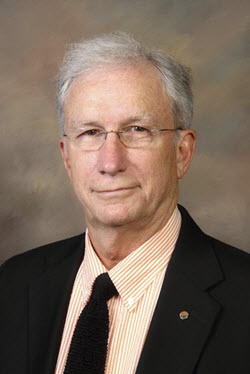
John Marson Dunaway
Professor Emeritus of French and Interdisciplinary Studies
Director, Mercer Commons: A Center for Faith, Learning, and Vocation (2004-2011)
Founder and Director of the Annual Building the Beloved Community Symposium
Research Interests
- Simone Weil
- Jacques Maritain
- Julien Green
- Georges Bernanos
- François Mauriac
- Léon Bloy
- Michel Tournier
- Vladimir Volkoff
- Jean-Louis Chrétien
- Sir Michael Edwards
Biographical Sketch
Born June 24, 1945 in Washington, Georgia, just a few miles from Penfield, where Mercer was founded by Jesse Mercer, then pastor of Washington Baptist Church. Married with three children, nine grandchildren. Grew up in Rockmart, Georgia, graduating from Rockmart High School (1963).
• B. A. from Emory University (1967)
• M. A. and Ph. D. from Duke University (1972)
Taught French and Interdisciplinary Studies at Mercer from 1972 to 2014.
Publications
In addition to a number of articles and reviews in various scholarly journals, Dunaway has written, translated, or edited the following books:
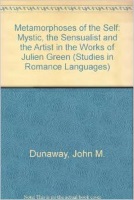 |
The Metamorphoses of the Self: The Mystic, the Sensualist, and the Artist in the Works of Julien Green. Lexington: U P of Kentucky, 1978 |
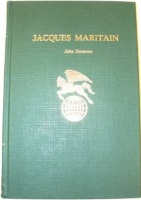 |
Jacques Maritain. Boston: Twayne, 1978 |
 |
Simone Weil. Boston: Twayne, 1984 |
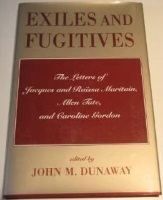 |
Exiles and Fugitives: The Letters of Jacques and Raissa Maritain, Allen Tate, and Caroline Gordon. Baton Rouge: LSU P, 1992 |
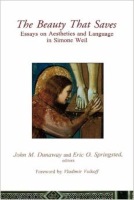 |
The Beauty That Saves: Essays on Aesthetics and Language in Simone Weil. Macon, GA: Mercer U P, 1996. (Co-edited with Eric O. Springsted) |
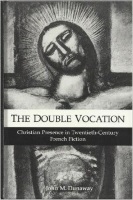 |
The Double Vocation: Christian Presence in Twentieth-Century French Fiction. Birmingham, AL: Summa, 1996 |
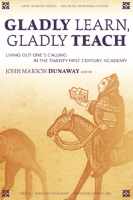 |
Gladly Learn, Gladly Teach: Living Out One's Calling in the 21st-Century Academy. Macon: Mercer UP, 2005 |
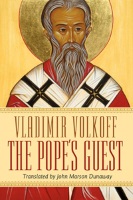 |
Vladimir Volkoff, The Pope’s Guest, translator. Macon: Mercer UP, 2013 |
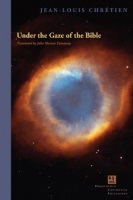 |
Translation of Jean-Louis Chrétien’s Under the Gaze of the Bible. New York: Fordham UP, 2015 |
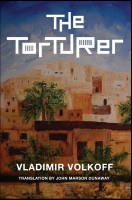 |
Translation of Volkoff’s 2006 novel, The Torturer. Macon: Mercer UP, 2016. |
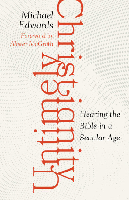 |
Translation of Michael Edwards’s Untimely Christianity: Hearing the Bible in a Secular Age. Minneapolis: Fortress Press, 2022. |
Other
Founded Faculty/Staff Christian Fellowship at Mercer in 1998.
Leisure interests include: reading, bicycling, walking, college football, Duke basketball, Braves baseball.
Favorite books: Dante’s Divine Comedy, Simone Weil’s Waiting for God, Georges Bernanos’s Diary of a Country Priest, and The Golden Book of Poetry.
Favorite movies: The Godfather, Lonesome Dove, and Zorba the Greek.
Testimony
Reared in a Christian home, I enjoyed the wonderful benefits of a godly heritage. My maternal grandfather was a Methodist minister, and my parents were faithful members of the local Methodist Church in the small northwest Georgia town, Rockmart, where I grew up. For much of my childhood I could not imagine there would be such a thing in the world as people who weren’t Christians. During my teens every summer I attended the Methodist youth camp in the North Georgia mountains, and one summer I interpreted the mountain-top experience at Camp Glisson as the "call to preach." I attended Duke University on a Christian Vocations Scholarship, but during my college years I had to deal with many of the typical intellectual doubts that go with that stage of life. Although I never really doubted God’s existence, I found myself growing further away from the church and began to wonder if my prayers--infrequent though they were--ever reached above the ceiling. In fact, for years I found it too hypocritical to pray "Thy kingdom come, Thy will be done," because I really couldn’t mean what I was saying. My last two years as an undergraduate I transferred to Emory University--mainly to get closer to my girlfriend--where the campus was continually abuzz with the "Death of God" controversy. I attended many of the lectures, read Thomas J. J. Altizer’s The Gospel of Christian Atheism, and even took one of Altizer’s classes. Rudolf Bultmann’s de-mythologizing project and Bishop John A. T. Robinson’s classic handbook to ‘60's liberalism Honest to God were typical of my theological input during those days. I recall the title of a paper I wrote for one of my theology classes, "A Religion-less Concept of Prayer."
During graduate school I gravitated toward the religious writers of modern France, and the diary of Julien Green was a real inspiration to me. Becoming a parent also was a motivating factor in coming back to the church. When our first child was born, it dawned upon me with sobering heaviness that I now was responsible for this little human being’s welfare, not only financially and educationally, but spiritually as well. I realized in a panic that all those tough questions about the meaning of life that I’d been putting on the back burner were going to be posed to me by my children and that they deserved to be answered in ways that my current state of wisdom could not provide.
When we moved to Macon in 1972 to start my teaching career at Mercer University, we joined a church, went to Sunday School, and even began to serve as youth counselors. But I somehow sensed that I was in dire need of discipline in my spiritual life. The event that God used to bring me into close communion with him was a Senior-High youth assembly at Epworth-by-the-Sea. The theme of the weekend was discipleship, and the main speaker, Danny Morris, challenged us to get serious about our faith by committing to a month of spiritual discipline called the Ten Brave Christians program (also known as the John Wesley Great Experiment). This was in February of 1975. The five disciplines of the program were: 1) spending the first 30 minutes of the day in guided Bible study and prayer; 2) tithing; 3) witnessing to others about my faith; 4) meeting weekly with a group of others going through the Experiment; and 5) performing at least one completely unselfish act each week. Ever since that time, I have endeavored--with varying degrees of success--to live up to that commitment, and it has revolutionized my life.
In 1998, I helped start a Faculty/Staff Christian Fellowship at Mercer. Then in 2004 I was appointed Director of Mercer Commons (a Lilly Endowment-funded Center for Faith, Learning and Vocation at Mercer). These new directions provided rich new ways of living out my calling as a Christian professor.
In 2005, I organized the Building the Beloved Community Symposium at Mercer, with the late Rev. Fred Shuttlesworth as keynote speaker. The symposium is now an annual event during Black History Month and has featured such keynoters as John Perkins, James Forbes, Sam Wells, Gail Bowman, Bill Leonard, Bob Lupton, and Sam Oni. Having retired from full-time teaching in 2014, I continue to help organize the symposium with my colleague Matt Harper, as well as pursuing my research and translation. I also serve as Chair of the Board of Directors for My Vision for Refugees, Inc., which supports an orphanage called Home of Hope in West Africa. It was founded by my former student Samuel Johnson (CLA 2013).
Contact
Available to lecture on a number of topics, such as French religious writers or Faith and Learning.
Dr. John Dunaway
Mercer University
Room 348, Tarver Library
1400 Coleman Avenue
Macon, GA 31207
(478) 719-3564 (voice)
(478) 301-2795 (fax)
dunaway_jm@mercer.edu